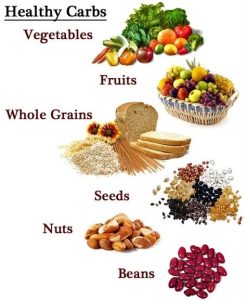CG Insights
Explore the latest trends and insights in technology and culture.
Feeding the Beast: A Delicious Journey to Mass Gain
Unleash your appetite and fuel your gains! Discover mouthwatering tips and meals for massive muscle growth in this delicious journey.
The Ultimate Guide to Macronutrients for Mass Gain
When it comes to mass gain, understanding macronutrients is essential for success. Macronutrients are the building blocks of your diet and are categorized into three main types: proteins, carbohydrates, and fats. Each plays a pivotal role in fueling your body and promoting muscle growth. For those aiming to increase their muscle mass, a well-balanced intake of these macronutrients is crucial. Generally, a common macronutrient ratio for mass gain could look like this: 40% carbohydrates, 30% proteins, and 30% fats. Tailoring these ratios to your unique body composition and fitness goals can significantly enhance your results.
Starting with proteins, they are vital for muscle repair and growth. Aim to consume at least 1.6 to 2.2 grams of protein per kilogram of body weight daily, focusing on high-quality sources such as lean meats, dairy, legumes, and protein supplements. Next, carbohydrates are your body's primary energy source, particularly during intense workouts. Incorporating complex carbohydrates like whole grains, fruits, and vegetables will fuel your workouts and aid in recovery. Finally, don't neglect fats, which are essential for hormone production and overall health. Incorporate healthy fats from sources like avocados, nuts, and olive oil to support your mass gain goals.

Top 10 High-Calorie Foods to Fuel Your Muscle Growth
If you're looking to fuel your muscle growth, it's essential to incorporate high-calorie foods into your diet. These foods not only provide the necessary energy for intense workouts but also support recovery and muscle repair. Here are the top 10 high-calorie foods that can boost your nutrient intake and contribute to your fitness goals:
- Nut Butters: Packed with healthy fats and proteins, nut butters are a delicious way to increase your calorie intake.
- Whole Eggs: Rich in protein and healthy fats, whole eggs are a perfect food for muscle building.
- Avocado: Loaded with healthy monounsaturated fats, avocados are calorie-dense and nutritious.
- Full-Fat Dairy: Products like cheese, yogurt, and milk provide rich sources of calories and protein.
- Quinoa: This high-protein grain is not only calorie-rich but also loaded with essential amino acids.
- Red Meat: A staple for muscle gain, red meat offers a high amount of protein and calories.
- Salmon: Full of omega-3 fatty acids and protein, salmon is a calorie-rich gem.
- Nuts and Seeds: These tiny powerhouses provide a substantial amount of calories along with healthy fats.
- Bananas: Great for pre-workout fuel, they offer a mix of carbs and calories.
- Rice: A great carbohydrate source, rice is easy to digest and calorie-dense.
How to Create a Meal Plan for Maximum Mass Gain
Creating a meal plan for maximum mass gain starts with understanding your calorie needs. It’s essential to calculate your Total Daily Energy Expenditure (TDEE) and then add a surplus of around 300-500 calories, depending on your goals. Begin by incorporating a variety of nutrient-dense foods into your meals. Focus on including protein-rich foods like chicken, fish, eggs, and legumes, which help in muscle repair and growth. Additionally, ensure that you add complex carbohydrates such as whole grains, sweet potatoes, and oats, which provide the necessary energy for workouts and daily activities.
Next, organizing your meals throughout the day is crucial. You can follow a 5-6 meals per day approach to keep your metabolism active and promote steady muscle gain. A sample structure could include:
- Breakfast: Scrambled eggs on whole-grain toast with a side of fruit.
- Mid-Morning Snack: Greek yogurt with nuts.
- Lunch: Grilled chicken with quinoa and steamed vegetables.
- Afternoon Snack: Protein shake with a banana.
- Dinner: Salmon with brown rice and asparagus.
- Evening Snack: Cottage cheese with berries.
Incorporating this structure not only aids in sufficient caloric intake but also ensures that you are fueling your body correctly for optimal performance and recovery.